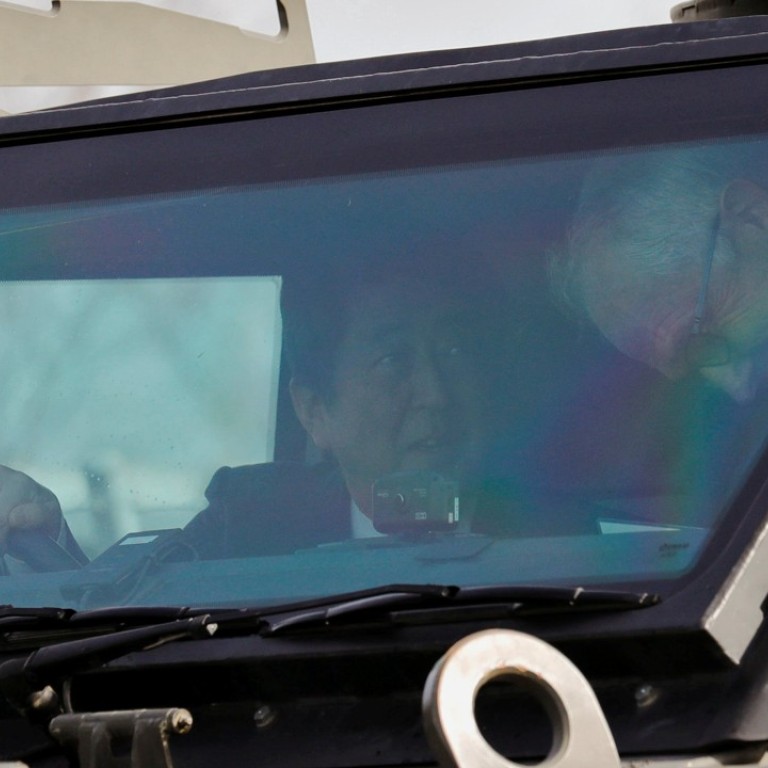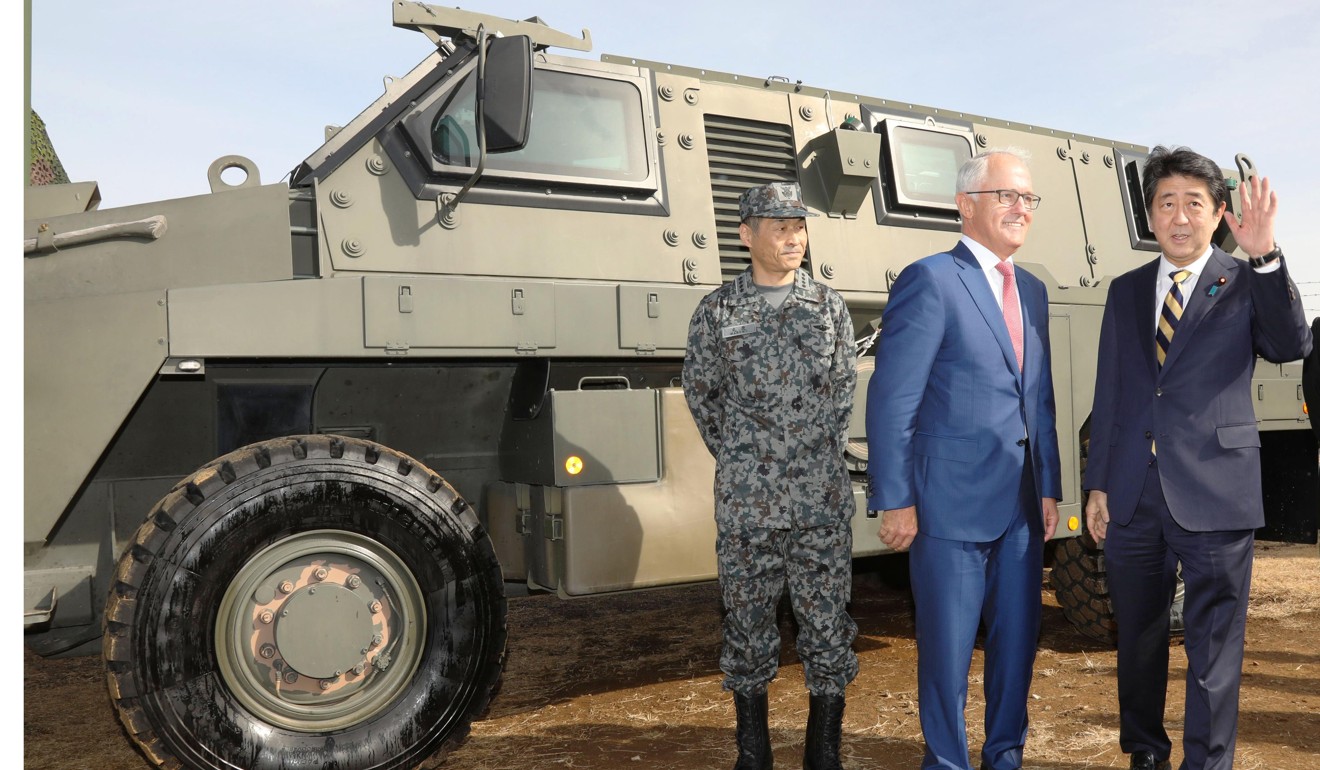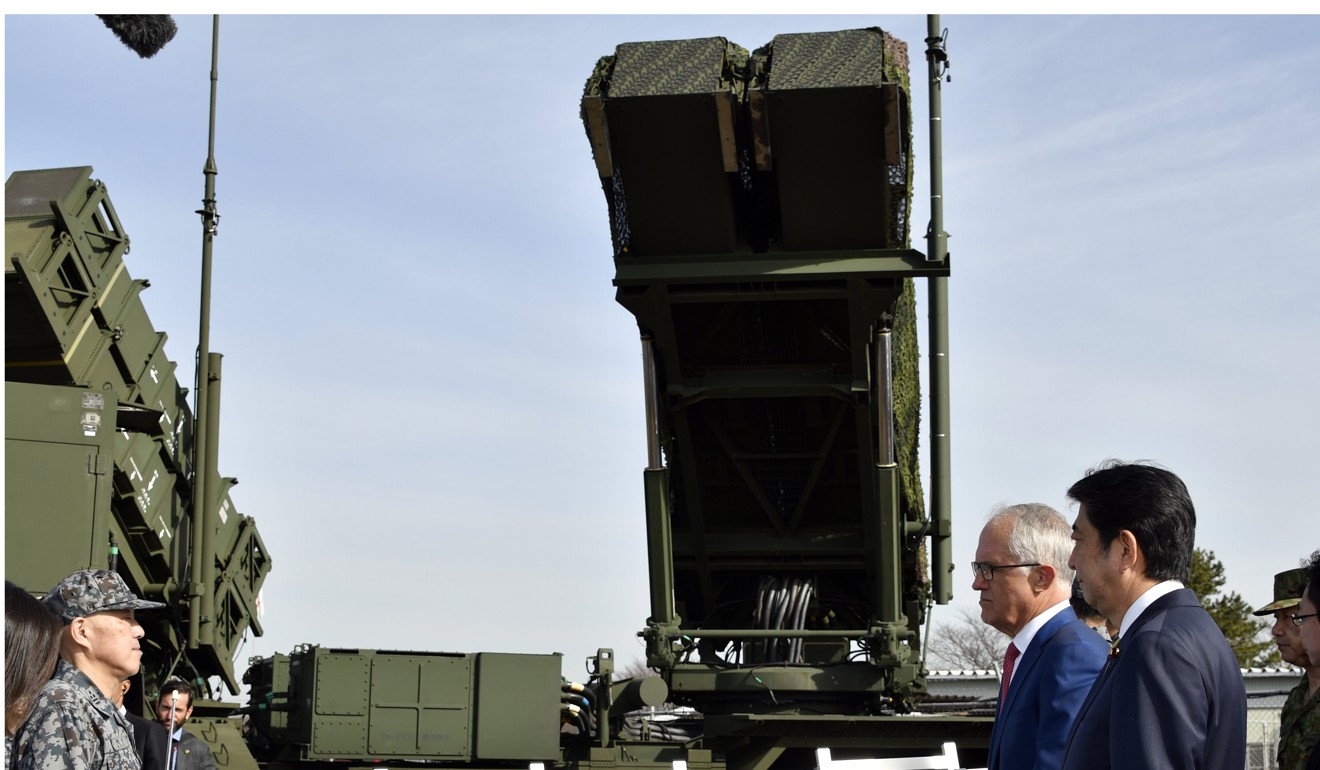
Japan and Australia push for defence pact that China views as a ‘threat to peace’
Diplomats are putting the finishing touches to the proposed defence pact, which would be the first of its kind for Japan and would make Australia Tokyo’s closest military partner after the United States
The prime ministers of Japan and Australia toured a military training camp outside Tokyo on Thursday, as the two countries seek to bolster defence ties in the face of the North Korean crisis.
Australian Prime Minister Malcolm Turnbull and Japanese Prime Minister Shinzo Abe viewed a PAC-3 missile interceptor at a Japan Ground Self-Defence Force camp in Funabashi city.
The two leaders also got inside a Bushmaster armoured vehicle, which was developed in Australia and adopted by Japan’s military in 2014.
Turnbull and Abe are hoping to thrash out a security agreement on joint defence operations and exercises, with one eye also on China as it expands its naval ambitions.
Diplomats are putting the finishing touches to the proposed defence pact, which would be the first of its kind for Japan and would make Australia Tokyo’s closest military partner after the United States.

The pact would reportedly lay the ground for Japanese military exercises out of Darwin, the northern Australian city heavily bombed by Japan in the second world war.
“The [military] agreement, when concluded, will be a pillar of the Japan-Australia security cooperation,” said a Japanese diplomat ahead of the talks.
Both capitals say boosting military cooperation is vital given the tense situation in the region, with North Korea’s missile programme bringing the world closer to nuclear conflict than at any time since the cold war.
China’s steady expansion of its military and economic influence in Asia-Pacific has also encouraged Japan and Australia to draw closer militarily.
“Japan and Australia are increasingly looking to each other to diversify their security partnerships and find common ground,” said Bates Gill, a professor in security studies at Sydney’s Macquarie University. “With concerns in both Canberra and Tokyo about China’s intentions in the region, the two leaders have a lot to talk about.”

A commentary earlier this month in China’s Global Times, a nationalist tabloid affiliated with Peop le’s Daily, criticised the Japan-Australia security relationship as a “threat to peace”.
Ahead of his visit, Turnbull urged the international community to keep up the pressure on North Korea.
“Japan and Australia are absolutely united in our resolve to ensure that the global community brings the strongest pressure to bear on North Korea … to ensure that the regime comes to its senses and stops its threatening and reckless conduct,” he said.
During his one-day visit, Turnbull will attend a special session of Japan’s National Security Council and visit Tokyo train station, one of the world’s busiest.
“We have heard the prime minister is a big fan of public transport,” the Japanese official said.
Also on the agenda for Turnbull is a meeting with Japanese business leaders as well as Tokyo police officials to discuss general counterterrorism efforts ahead of the 2020 Olympic Games in Tokyo.
The two men will also discuss economic ties, with a joint push to eventually sign a vast Trans-Pacific Partnership deal.
Agence France-Presse, Associated Press, Bloomberg
